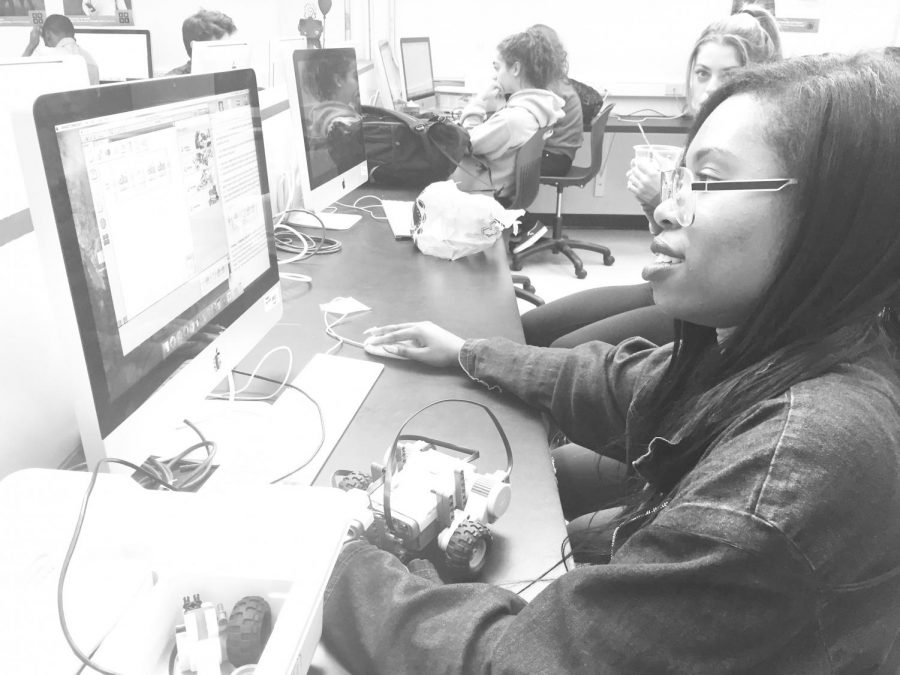Historically black college a perfect fit for these seniors
With 428 seniors graduating in the spring, some of them have made the choice to go to a historically black college, including Nia Blair and Dea Chappell.
“I only applied to black colleges,” said Blair, who will be attending Tennessee State University in the fall. “I want to go somewhere where I don’t have to think before I speak.” Blair recalled that during some semesters at Pioneer, she felt a bit isolated. “I am the only black person in three of my six classes [right now],” she said. Blair added that in some of her classes through the years, she has not always felt comfortable, or believed her views were not valued. “For example, in group projects, I was given the easy assignments such as coloring, or emailing the teacher,” Blair said. “Some people just assumed that I wasn’t smart enough to do anything else.”
Both Blair and Chappell say that students who attend historically black colleges who are not black would see the world through a different perspective, just as they have experienced while attending majority white schools. According to HuffPost, one of the best reasons to go to a HBCU is because of their diversity. “Outside of black people, you’ll find all races on HBCU campuses. Contrary to popular belief, they aren’t exclusive to just black people. They’re actually becoming more white,” the article said.
Chappell said she knows some people claim same single gender or black colleges can limit people, but she disagrees. “If black school [graduates] were unable to adapt to the so-called ‘real-world,’ then HBCUs wouldn’t be responsible for 70 percent of black professionals, one being Oprah Winfrey, who graduated from TSU,” said Chappell, who will be heading to that school in the fall as well.
Both Blair and Chappell believe there are many benefits to attending HBCUs, some of which include the diversity, sense of empowerment, and a first-rate education. Chappell said she is excited to get involved on campus, while Blair is ready to “get more armor” and prepare for the real world.
Blair is the 34th person in her family to attend Tennessee State. She wants to study psychology and perhaps get a Ph.D. “I want to go into television broadcasting and become a political commentator,” she said. Although her family has strong ties to Tennesse State, Blair said her father wanted her to choose a different school. “My dad thinks I am limiting myself by going to Tennessee State, especially because I got into Michigan,” she said. But Blair believes the school is the right fit for her.
Chappell will attend Tennessee State in the fall to study criminal justice. “[TSU] is a great fit for my major because my goal is to become a civil rights attorney,” she said. “Being at TSU, I will be surrounded by minorities who are usually underserved by our justice system.”
There are currently 107 historically black colleges and universities in the United States, 51 of which are public schools, including Tennessee State. HBCUs are located in 19 of the 50 states, not including the District of Columbia and the Virgin Islands. They include traditional colleges, medical schools, and law schools.
Chappell says that TSU is the perfect school to set her up for success. “This experience will prepare me for the real world through all of the community involvement and leadership opportunities TSU has,” she said. Blair said she thinks that rather than making her tougher for a tough world, the HBCU experience will actually make her softer. “I fight so much already being a black woman,” she said.
According to Inside Higher Ed, historically black colleges and universities have higher “elements of well-being,” such as social elements, financial, purpose, community, and physical elements. “Black graduates of historically black colleges and universities are significantly more likely to have felt supported while in college and to be thriving afterwards than are their black peers who graduated from predominantly white institutions,” the article said.
“This experience will allow me to spread my wings and become more independent,” Chappell said. “Overall, I am looking forward to a great four years!”


